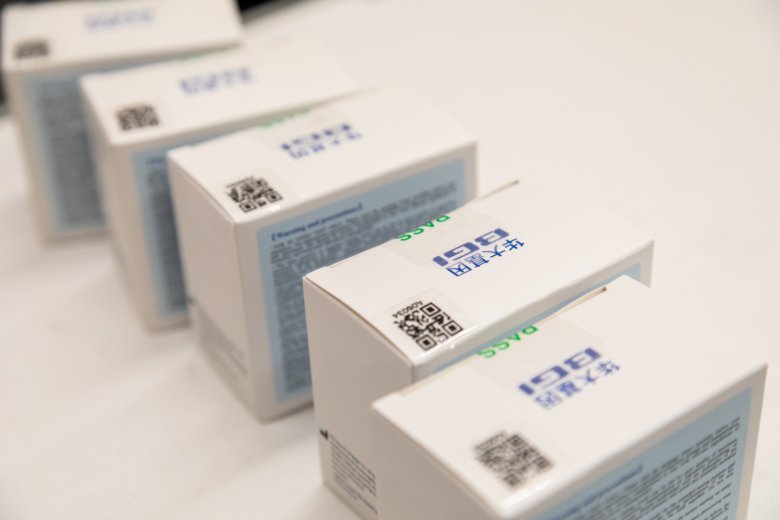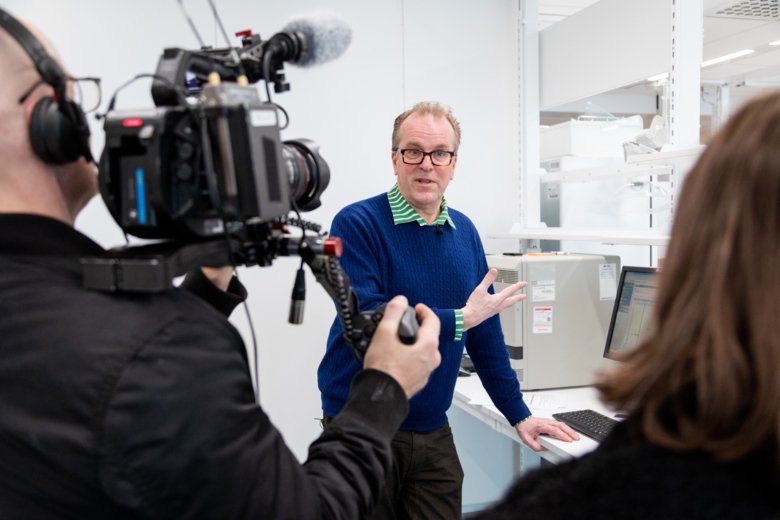Next stage ready to enhance Covid-19 diagnoses
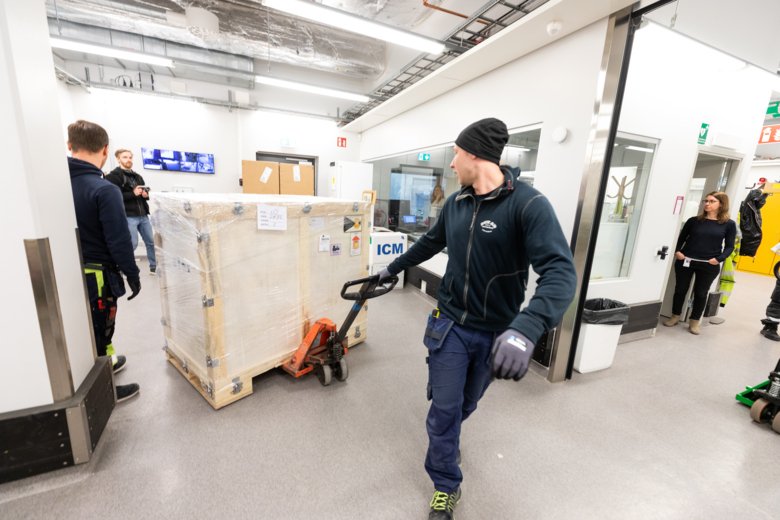
Karolinska Institutet has now received the test material that will allow scientists to perform 5,000 analyses a day on patient samples. The lab will be ready next week thanks to the swift cooperation of KI researchers and Knut and Alice Wallenberg Foundation.
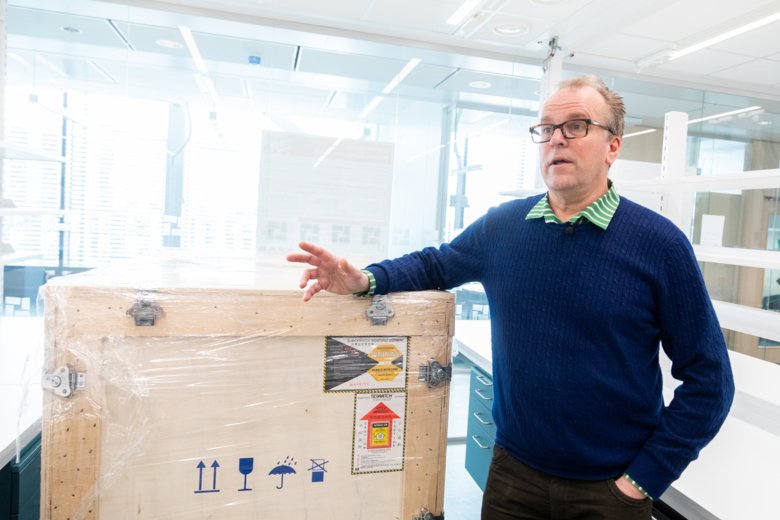
A specially chartered SAS flight landed at Arlanda on Wednesday evening carrying a large delivery of test material for Covid-19. The delivery comes direct from China and was made possible thanks to the close contacts KI researchers have with the Shenzhen-based research institute BGI/MGI.
“There’s a global shortage of test material and new deliveries can’t be guaranteed from many suppliers,” says Lars Engstrand, professor of infectious disease control and director of KI and SciLifeLab’s Centre for Translational Microbiome Research (CTM). “When this opportunity arose, we had to make some quick decisions and to secure solid support from the KI management and, not least, financial support from Knut and Alice Wallenberg Foundation.”
The material will make it possible for scientists to perform 5,000 analyses per day over the coming weeks to establish an ongoing infection of Sars-CoV-2.
Laboratory set up in record time
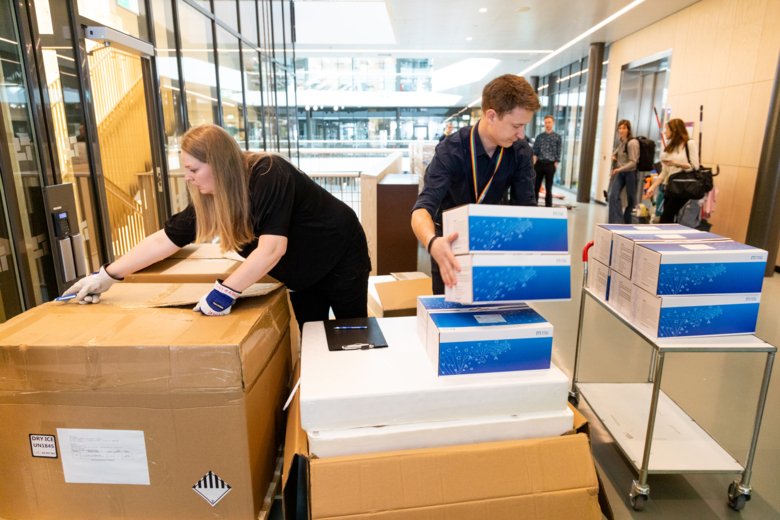
Thanks to targeted funding from Knut and Alice Wallenberg Foundation and to KI’s quick response to free up premises, personnel and administrative resources, a laboratory has been set up in record time. The lab is situated at the CTM and was previously used for research on the human biome. The samples themselves will be taken within the healthcare system, while KI will contribute with sample analysis, evaluation and knowledge development.
“There’s a work process that needs establishing, and our part in it will be ready in one or two weeks,” says Professor Engstrand. “When everything’s in place, we hope to be able to maintain the level of testing for five or six weeks.”
The delivery from China includes analysis reagents for detecting the virus’s RNA and five new laboratory robots. During the past two weeks, the analysis methods have been evaluated through approximately 2,000 clinical tests carried out in collaboration with Karolinska University Hospital.
Keen willingness
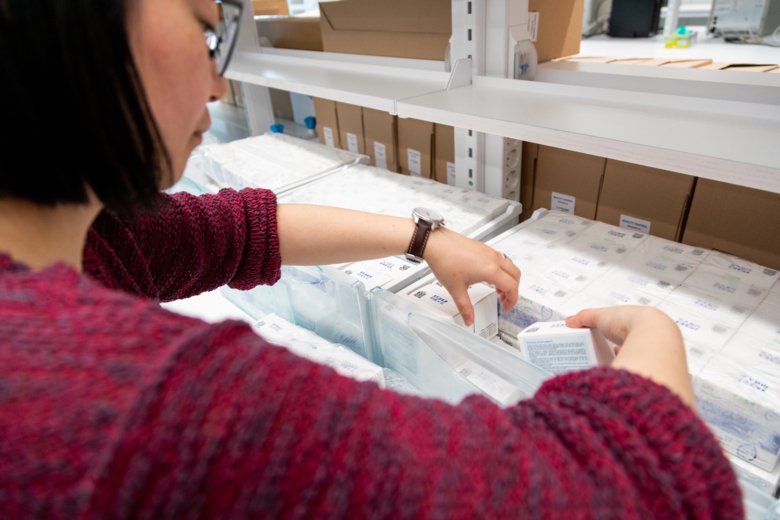
“Our own staff at CTMR and personnel from around SciLifeLab and KI have demonstrated a keen willingness to devote their time and equipment to the efforts,” he continues. “We’ve been able to do this thanks not only to financial support from Knut and Alice Wallenberg Foundation but also to the great cooperation and support we’ve had from the KI management.”
Apart from the provided funding used to speed up clinical diagnosis, Knut and Alice Wallenberg Foundation has also donated SEK 50 million to SciLifeLab for the development of additional analytical methods. A large number of project proposals are now being assessed, including ones aiming to ascertain the virus’s mutability and to develop new forms of test.
The collaboration includes, amongst others, Karolinska Institutet, SciLifeLab, Genomic Medicine Sweden and healthcare providers along with Knut and Alice Wallenberg Foundation.
